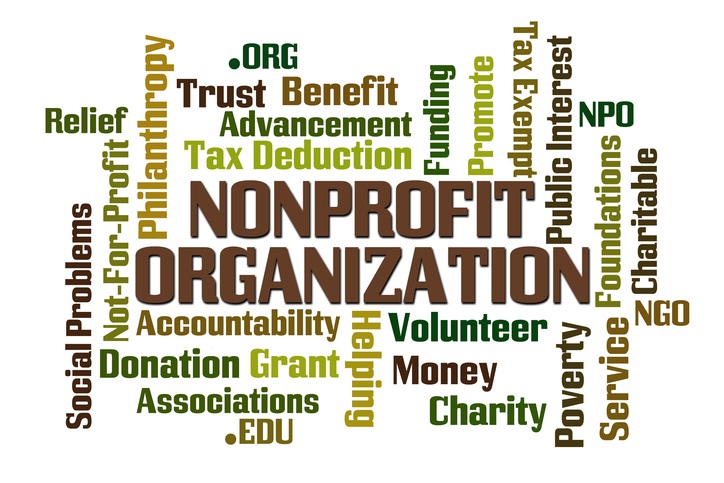Starting and running an NGO in Nigeria is often driven by passion, commitment, and a desire to make a difference. Yet, passion alone will not sustain your organization. One critical area that many NGOs overlook—sometimes to their peril—is financial reporting and compliance with regulatory bodies like the Financial Reporting Council of Nigeria (FRC). Understanding and meeting these obligations is not just a legal formality—it is a foundation for trust, sustainability, and impact. How your NGO manages and reports its finances is no longer just an internal concern; it is a legal obligation enforced by the Financial Reporting Council of Nigeria (FRC). Failure to meet these obligations can jeopardize your funding, reputation, and even your registration status.
Understanding the Role of the Financial Reporting Council of Nigeria (FRC)
Established under the Financial Reporting Council of Nigeria Act, 2011, the FRC’s primary mandate is to regulate and oversee financial reporting in Nigeria. While many associate the FRC with commercial companies, its scope expressly includes non-governmental organizations and nonprofits. This inclusion is grounded in the need for transparency, accountability, and trustworthiness in all entities handling public or donor funds.
The FRC ensures that NGOs submit accurate, complete, and timely financial reports that conform to the required accounting standards and governance principles. The goal is to safeguard donor confidence and public trust while promoting sound financial practices across the nonprofit landscape.
Why Should NGOs Care About Financial Reporting?
Consider Hope for All, an NGO in Ibadan that started small but grew quickly through grants and partnerships. Initially, they treated financial reporting as an administrative afterthought—annual reports were delayed, incomplete, and lacked formal audits. Within two years, several donors withheld funding, questioning the NGO’s financial stewardship. Worse still, Hope for All attracted scrutiny from the FRC, resulting in warnings and the risk of deregistration.
The consequences of poor financial reporting are real and severe:
- Loss of donor confidence and funding
- Legal penalties, including fines and possible deregistration
- Reputational damage that undermines your mission
- Difficulty in forming strategic partnerships
Section 7(2)(g) of the FRC Act 2011 mandates that every organization, including NGOs, must prepare financial statements that comply with accounting standards issued or recognized by the FRC. For most NGOs, this means adopting the International Financial Reporting Standards for Small and Medium-sized Entities (IFRS for SMEs) or specific Nigerian standards where applicable.
Key legal requirements include:
- Registration with FRC: NGOs must register with the FRC as part of their compliance obligations. This process includes registering their key financial officers, such as the treasurer or CFO.
- Annual Financial Statements: NGOs are required to prepare and submit audited financial statements annually. These should include a statement of financial position, income and expenditure, cash flows, and notes to the accounts.
- Audit and Assurance: Financial statements must be audited by a qualified independent auditor registered with the FRC. This ensures credibility and objectivity.
- Timely Submission: Reports must be submitted within the deadlines set by the FRC. Delays can attract penalties and sanctions.
- Transparency in Related Party Transactions: Any transactions involving trustees, directors, or related parties must be clearly disclosed.
Practical Steps for NGOs to Meet FRC Obligations
Meeting these obligations may seem daunting, but with a clear plan, your NGO can not only comply but also leverage strong financial reporting to build trust and unlock new opportunities.
1. Register with the FRC Early: As soon as your NGO is operational, complete registration with the FRC. This includes registering your financial officers. Early registration signals seriousness and commitment to compliance.
2. Keep Detailed Financial Records: Maintain accurate books of accounts from day one. Use accounting software suitable for NGOs, like QuickBooks Nonprofit or Wave, to track income, expenditures, grants, and donations.
3. Hire or Engage Qualified Accountants and Auditors: Avoid the trap of informal or unqualified persons managing your books. A certified accountant familiar with nonprofit accounting and Nigerian financial regulations can save you time, money, and risk.
4. Plan and Prepare Your Annual Financial Statements: Work closely with your accountant to prepare statements in line with IFRS for SMEs. Review these internally with your Board or Trustees before audit.
5. Conduct Annual Audits with a Registered Auditor: Engage auditors registered with the FRC. The auditor’s role is to examine and certify the accuracy of your financial reports, providing assurance to donors and regulators.
6. Submit Reports on Time: Late submission leads to penalties and erodes stakeholder confidence. Mark your calendar with FRC deadlines and ensure timely filing.
A practical example is an NGO- the GreenFuture Initiative who struggled with compliance for years. Their financial reports were often late, incomplete, and unverified by auditors. Donors started to pull back, citing lack of transparency. After a critical donor meeting, GreenFuture leadership decided to overhaul their financial management.
They registered with the FRC, hired a professional accountant, adopted accounting software, and committed to annual audits. Within a year, donor confidence returned, grants increased by 30%, and the NGO expanded its programs. Transparency wasn’t just a requirement—it became a tool for growth.
Financial transparency isn’t just about ticking regulatory boxes. It is a cornerstone of good governance that:
- Builds stakeholder trust (donors, beneficiaries, partners)
- Improves decision-making and resource allocation
- Helps detect and prevent fraud and mismanagement
- Positions your NGO for sustainability and scalability
Running an NGO is about more than delivering programs—it’s about building a trustworthy institution that can weather challenges and grow sustainably. Proper financial reporting under the FRC’s watch is a powerful step toward that goal.
As the saying goes, “Trust takes years to build, seconds to break, and forever to repair.” Protect your NGO’s trust and future through transparency and accountability.
If you want practical assistance with FRC registration or setting up your NGO’s financial systems, feel free to reach out. Let’s build strong, transparent NGOs that make real impact.
Thank you for reading this edition of The Informed Founder.
Stay informed. Stay compliant. Stay impactful.

